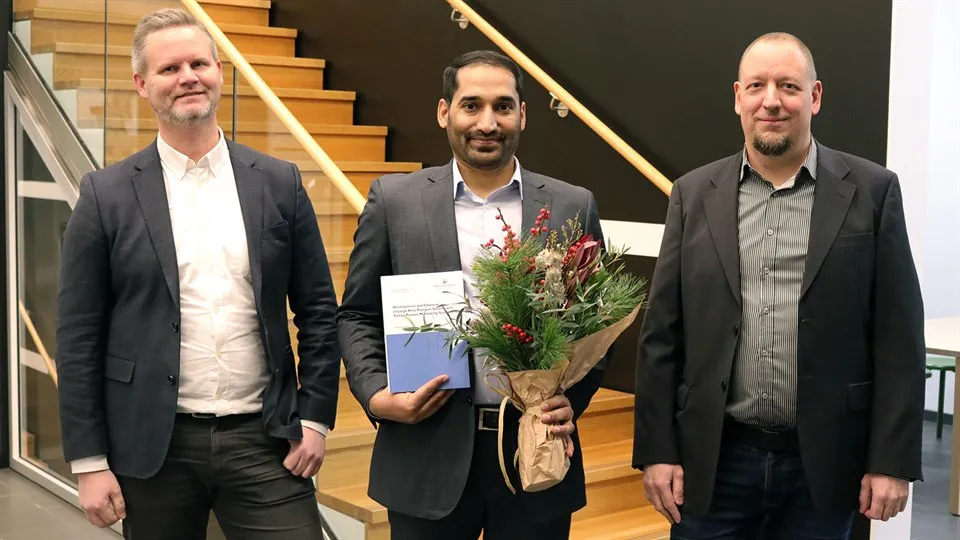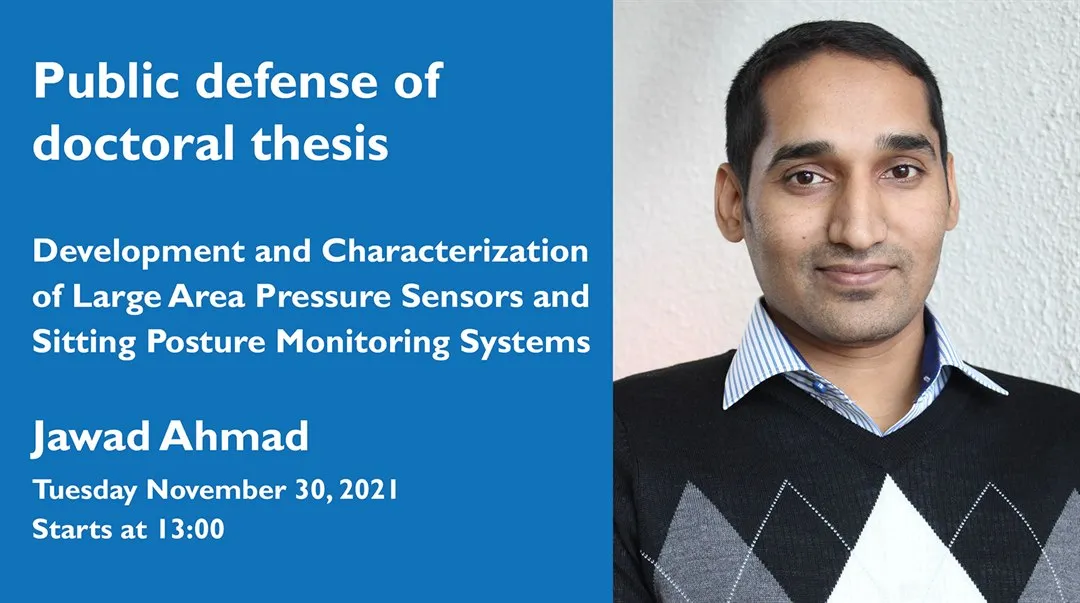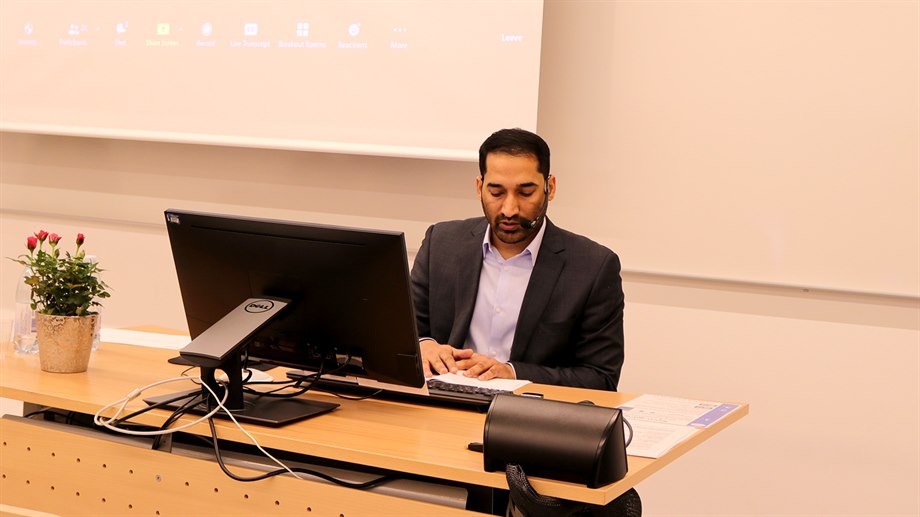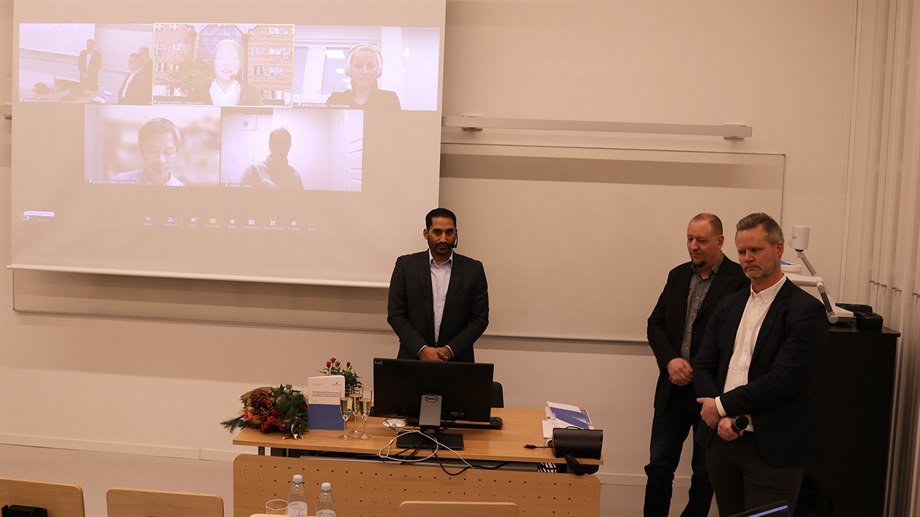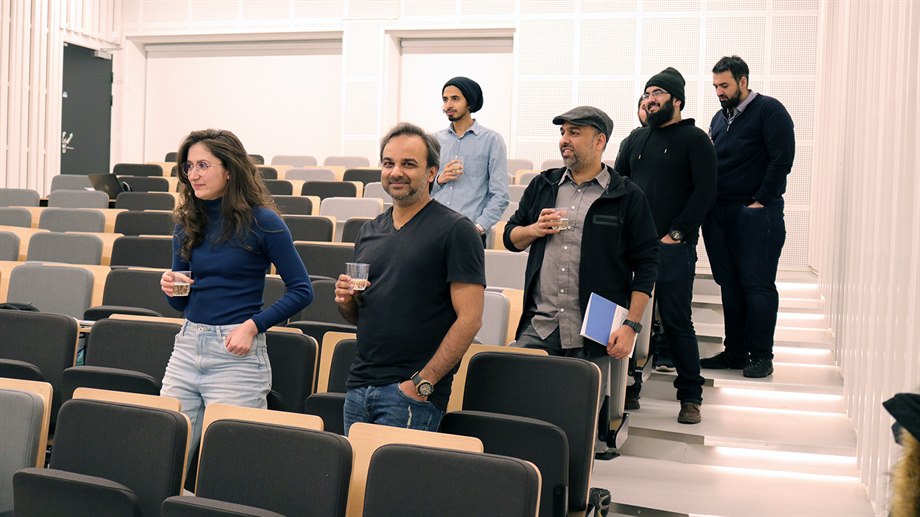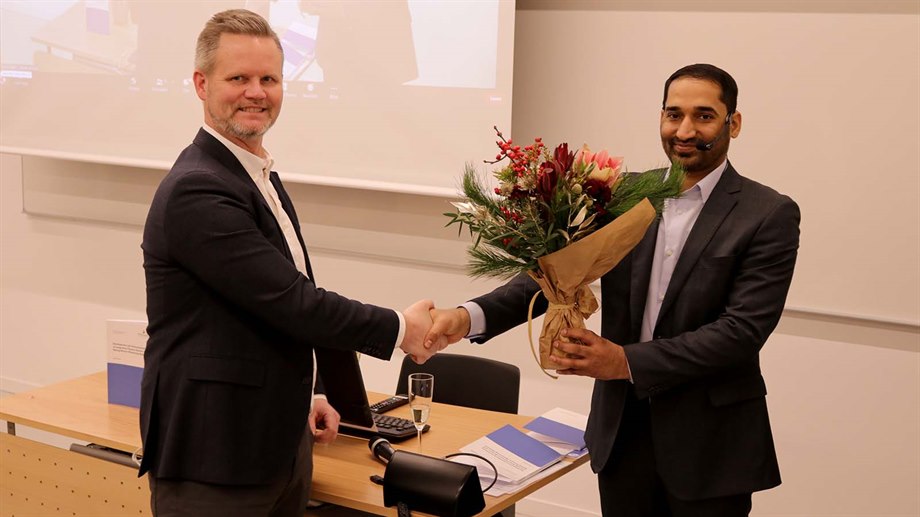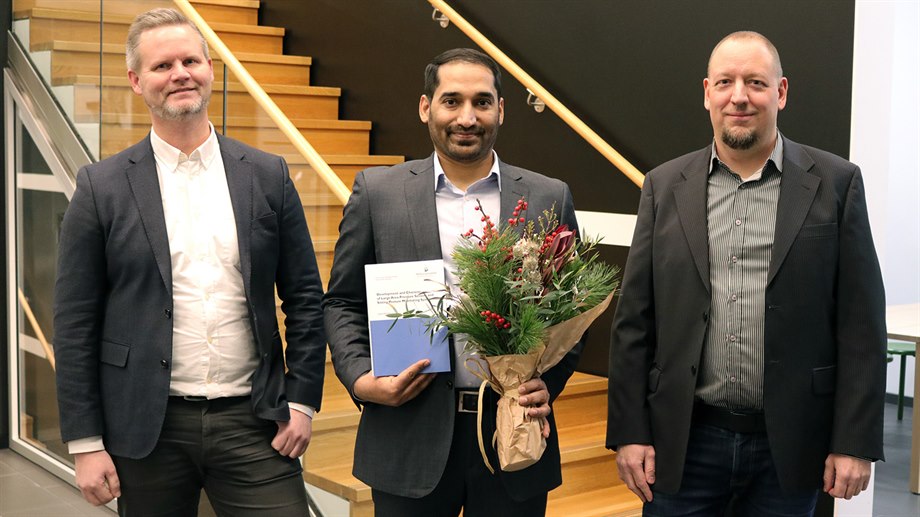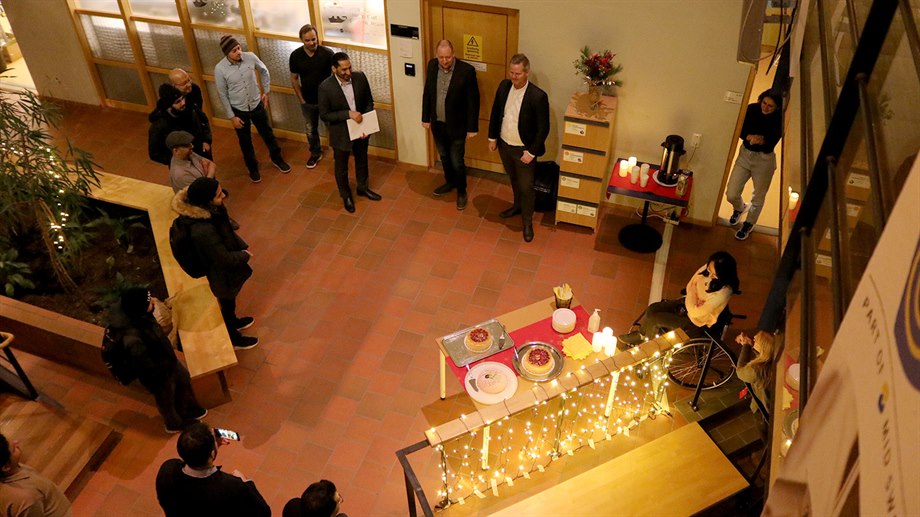av
Jawad Ahmad ny doktor vid STC
Tisdagen den 30 november presenterade Jawad Ahmad framgångsrikt sin doktorsavhandling "Development and Characterization of Large Area Pressure Sensors and Sitting Posture Monitoring Systems" för betygskommittén och och han kan nu titulera sig som doktor i elektronik.
Opponent till avhandlingen var professor Leena Ukkonen från Tampere University i Finland. I betygskommittén fanns docent Zhibin Zhang från Uppsala Universitet, docent Sari Merilampi från Satakunta University of Applied Sciences, Finland och professor Tingting Zhang från Mittuniversitetet.
Abstract
With the emergence of the Internet and rapid development of science and technology over the past few decades, many individuals worldwide now rely on the Internet to conduct daily activities ranging from education, business and creativity to communication and shopping. As we tend to spend more and more time on the Internet and engage less in physical activities, this persistent behaviour could result in some health-related issues within a relatively short period of time. This behaviour, known as sedentary lifestyle, may be related to a higher risk of cardiovascular disease, osteoporosis, obesity, anxiety, pressure ulcers and many other illnesses. As a consequence, there has been great interest in developing non-invasive and unobtrusive measurement techniques for a variety of health care-monitoring applications, such as for blood oxygen saturation, stress levels, electrocardiograms and glucose monitoring. In such systems, wearable and flexible electronics technologies may enable monitoring of vital signs, offering significant potential for early screening as well as long-term behaviour modelling.
In this thesis, large area pressure sensors based on non-conventional materials are proposed and realised by screen printing technique for monitoring sitting postures. The developed pressure sensing system measures distributed pressure when an individual sits on a chair equipped with a pressure sensor array. This technology could provide grounding for the advancement of health-related monitoring systems for both able-bodied and disabled individuals and inform them of their sitting time and sitting posture, and this could be used to establish a sitting pattern. To accomplish this, pressure sensors have been designed using non-conventional flexible electronics. A blend of non-conductive and low-resistance ink is used as pressure-sensitive material to enable the realization of screen-printed sensors. To characterise the performance of the suggested pressure sensor, several tests, such as repeatability, drift and flexibility, are conducted. The sensor has also been exposed to different humidity and temperature conditions in a climate chamber to examine its functionalities.
A graphical user interface was developed for real-time demonstration of data from distributed pressure points in the form of a pressure map to display the pressure values. Four sitting postures are identified: forward, backward, left, and right leaning. Furthermore, a stretchable pressure sensor is proposed that could follow slight stretching with regard to changes in the shape of the human skin. Machine learning algorithms have been employed to further enhance the sitting posture identification, and accuracy of 99.03% is attained. A standalone embedded system capable of illustrating real-time pressure data has been developed with the potential to be used in portable health monitoring systems. In summary, this work provides a promising framework for measuring pressure distribution and identifying irregular sitting postures that may help to reduce the potential risks of developing health-related issues associated with prolonged sitting time.
